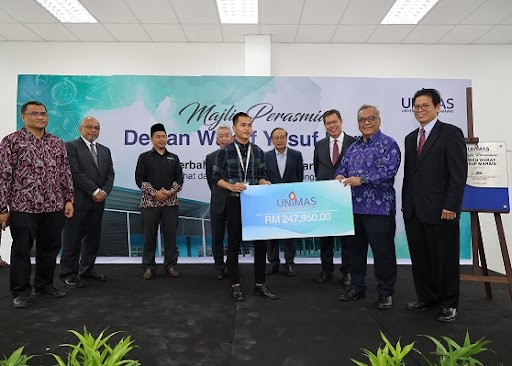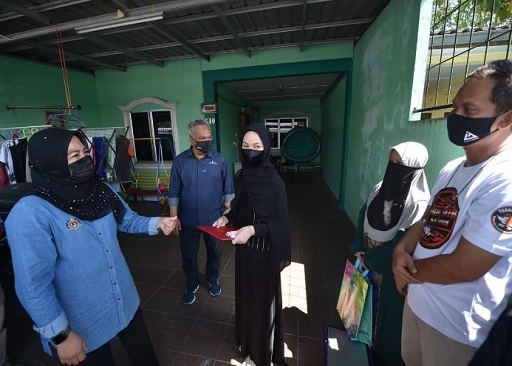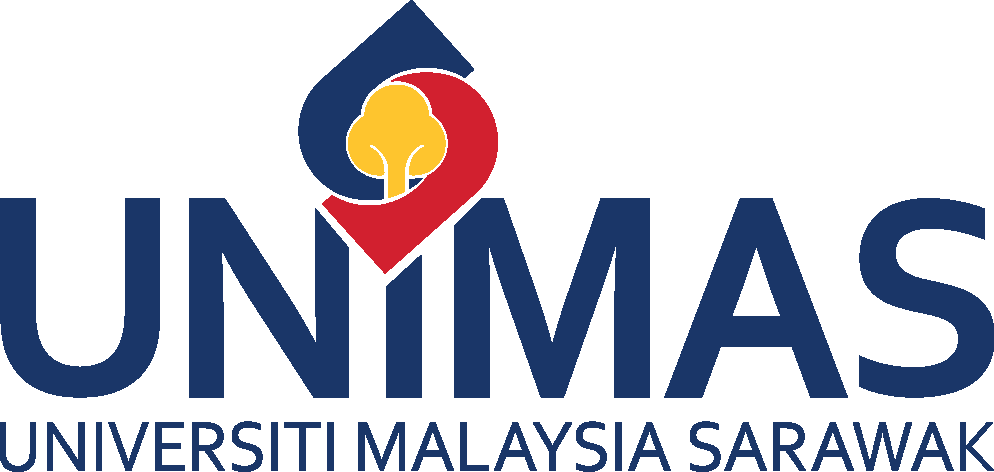NO POVERTY
UNIMAS is committed to enrol students from backgrounds where poverty is a factor by ensuring that these students have the essential support to complete their studies. By providing necessities such as food, accommodation, transportation, and legal services, the students from low-income families will be able to complete their university learning with more ease.
In order to assist students in completing their studies and to graduate successfully, UNIMAS holds an annual career exhibition which includes Career Talks and walk-in interview sessions for both enrolled & graduated students searching for job opportunities and internship placements.
Every year, UNIMAS offers a bachelor’s degree as a second chance to candidates whom has failed to attain any offers from other Public Institution of Higher Learning. The offer entails a minimum academic requirements and is eligible for students of families with household income of RM3000 or the lowest household income group. UNIMAS is fully dedicated and in support of this objective as it is a part of the university’s responsibility to provide academically for the underprivileged students. This comes with the hope that these students will become the backbone that could change the pattern of their existing household income after graduating.
In order to achieve this SDG objective, UNIMAS Endowment Fund targets to fund the students under the B40 program (Scholarship Fund B40) by paying for the registration fees, recurring and non-recurring fees for Semester 1 in Year 1, while waiting for the students to apply for financial assistance from other parties such as PTPTN.
Besides that, Student Welfare Fund has the goals to alleviate the burden of any student or their family that has been affected by death, accident, illness, disasters such as floods, landslides, fires etc. Financial assistance is provided in the form of monies and kind, transportation costs, mortgage management costs and assistance in the form of payment of accommodation / college, transportation and living expenses.
UNIMAS with the government & the NGOs, aid and provide the local community financially in assisting the start-up of sustainable businesses through relevant education and resources (e.g., mentorship programmes, training workshops, access to university facilities)
In order to assist students in completing their studies and to graduate successfully, UNIMAS holds an annual career exhibition which includes Career Talks and walk-in interview sessions for both enrolled & graduated students searching for job opportunities and internship placements.
Every year, UNIMAS offers a bachelor’s degree as a second chance to candidates whom has failed to attain any offers from other Public Institution of Higher Learning. The offer entails a minimum academic requirements and is eligible for students of families with household income of RM3000 or the lowest household income group. UNIMAS is fully dedicated and in support of this objective as it is a part of the university’s responsibility to provide academically for the underprivileged students. This comes with the hope that these students will become the backbone that could change the pattern of their existing household income after graduating.
 |
 |
|---|
In order to achieve this SDG objective, UNIMAS Endowment Fund targets to fund the students under the B40 program (Scholarship Fund B40) by paying for the registration fees, recurring and non-recurring fees for Semester 1 in Year 1, while waiting for the students to apply for financial assistance from other parties such as PTPTN.
Besides that, Student Welfare Fund has the goals to alleviate the burden of any student or their family that has been affected by death, accident, illness, disasters such as floods, landslides, fires etc. Financial assistance is provided in the form of monies and kind, transportation costs, mortgage management costs and assistance in the form of payment of accommodation / college, transportation and living expenses.
UNIMAS with the government & the NGOs, aid and provide the local community financially in assisting the start-up of sustainable businesses through relevant education and resources (e.g., mentorship programmes, training workshops, access to university facilities)


